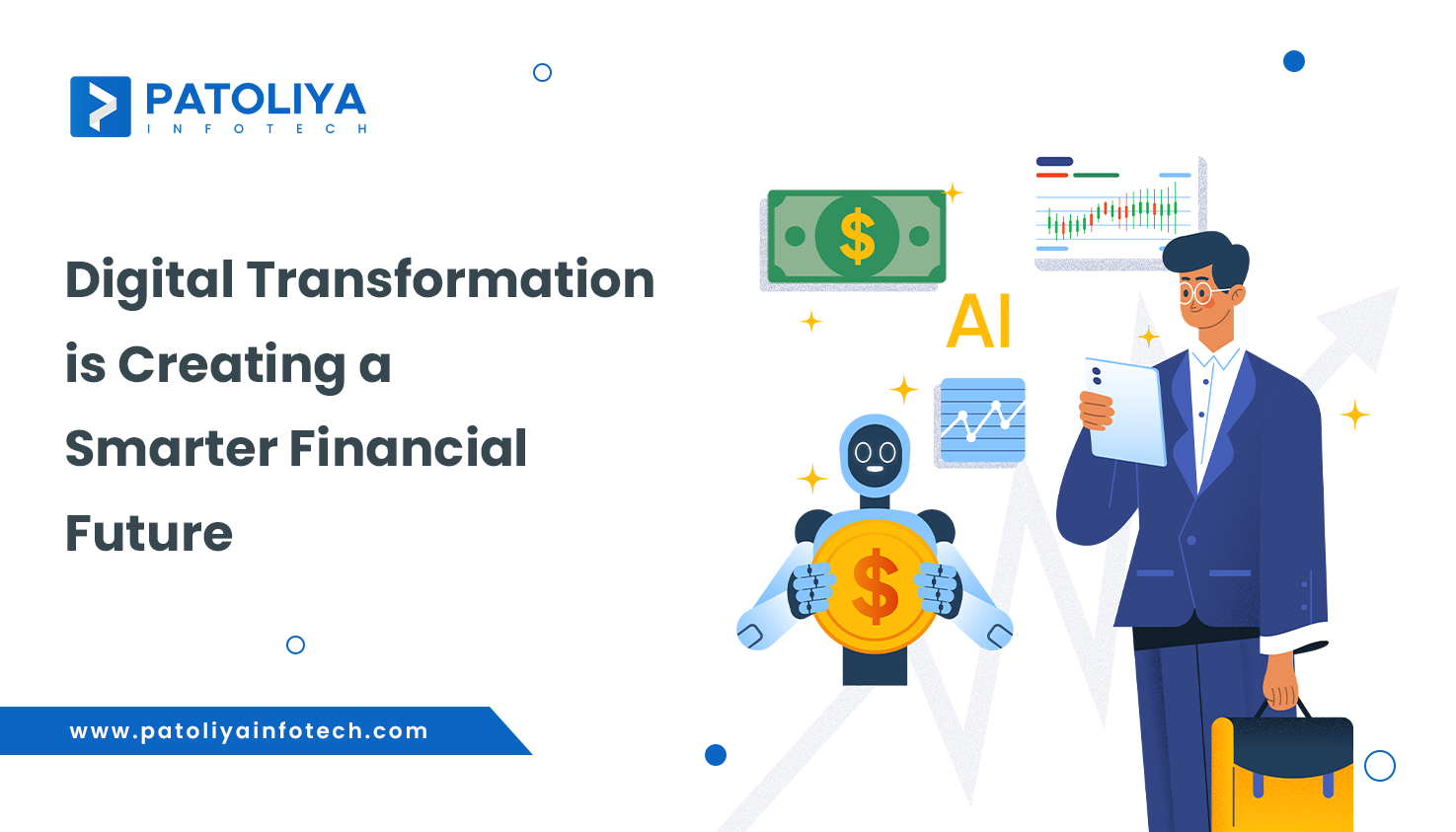Digital Transformation More Than Buzzword Its Business Evolution

Table of Contents
Digital transformation, in essence, signifies a paradigm shift in how businesses operate in today's digital-centric era.
It involves more than just adopting new technologies; it requires a comprehensive overhaul of organizational strategies, processes, and customer interactions to thrive in the digital landscape.
Don't understand? Let me give you an example.
Envision your company riding a tidal wave of data, driven by innovative customer-focused thinking and state-of-the-art technology.
That's the power of digitalization—a total makeover for the digital era rather than simply a simple tech update.
Ignore cumbersome procedures and information silos. The goals of digitization include efficiency, agility, and revealing your company's latent potential.
Nevertheless, brave reader, do not panic! We're here to help you navigate this digital journey's exhilarating rapids and hidden gems.
Do You Know : Why is the Demand for IT Solution Providers?
Why Digital Transformation is Important
Benefits of Digitization
The significance of digitalization lies in its multifaceted benefits, which extend far beyond mere technological advancements.
Embracing computerization empowers organizations to achieve heightened operational efficiency, cost optimization, enhanced agility, data-driven decision-making, and unparalleled customer satisfaction.

Key Components of Digitalization
Technology Integration
At the core of digital transformation lies the seamless integration of cutting-edge technologies such as artificial intelligence, machine learning, cloud computing, Internet of Things (IoT), and automation into existing business operations.
This integration catalyzes driving innovation and efficiency across various departments and processes.
Data Analytics
Data serves as the lifeblood of computerization. Leveraging advanced analytics tools and techniques enables organizations to derive actionable insights from vast volumes of data.
Not only do these insights inform decision-making, but they also enable personalized customer experiences, leading to stronger relationships and loyalty.
Customer Experience Enhancement
A pivotal aspect of digitalization revolves around elevating customer experiences through digital channels.
By leveraging technologies like chatbots, virtual assistants, and personalized marketing strategies, organizations can deliver seamless and engaging experiences, thereby enhancing customer satisfaction and retention.
Challenges in Implementing Digital Transformation
Resistance to Change
One of the primary challenges encountered during digital transformation initiatives is resistance from employees accustomed to traditional workflows and practices.
Overcoming this resistance necessitates effective change management strategies, comprehensive training programs, and fostering a culture of adaptability and innovation.
Integration Issues
Integrating new digital technologies with existing systems and processes often presents logistical and technical hurdles.
Organizations must devise robust integration frameworks, employ agile methodologies, and enlist the expertise of skilled professionals to navigate these challenges successfully.
Security Concerns
With the proliferation of digital technologies comes an inherent increase in cybersecurity risks.
Safeguarding sensitive data, mitigating potential threats, and ensuring regulatory compliance emerge as paramount priorities for organizations undergoing digitalization.

Strategies for Successful Digitization
Leadership Support
Effective leadership plays a pivotal role in driving successful digitization initiatives.
Leaders must demonstrate unwavering commitment, articulate a clear vision, allocate resources judiciously, and champion a culture of innovation and collaboration throughout the organization.
Clear Vision and Goals
A well-defined digitalization roadmap, aligned with organizational objectives, serves as a guiding light amidst the complexities of technological change.
Organizations can maintain focus, direction, and momentum throughout the transformation journey by setting clear and measurable goals.
Also check for : How To Choose a Mobile App Development Company?
Agile Approach
Its essential to adopt an agile mindset to navigate the ever-changing digital landscape.
Embracing iterative development, continuous feedback loops, and adaptive planning enables organizations to respond swiftly to market dynamics, customer feedback, and emerging opportunities.
Wrap Up
Digital transformation represents a pivotal imperative for organizations seeking to thrive and remain competitive in the digital age.
By embracing digital technologies, fostering a culture of innovation, and prioritizing customer-centricity, organizations can unlock unprecedented opportunities, drive sustainable growth, and chart a course toward enduring success.
Transformation is not a one-time event, it is a continuous journey of exploration.
With the right strategies and a willingness to adapt, you can unlock unprecedented growth, create deeper customer connections, and become a beacon of innovation in the digital space.
So, plan your course, raise the sails, and let's embark on this exciting digital adventure together!



